
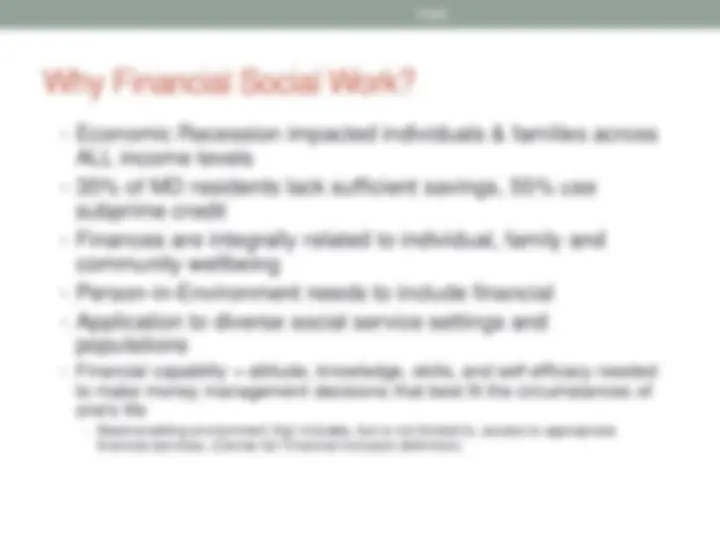
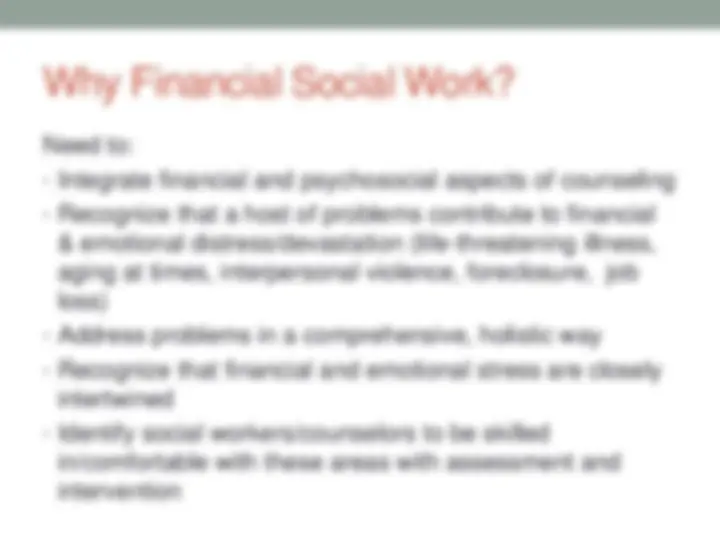
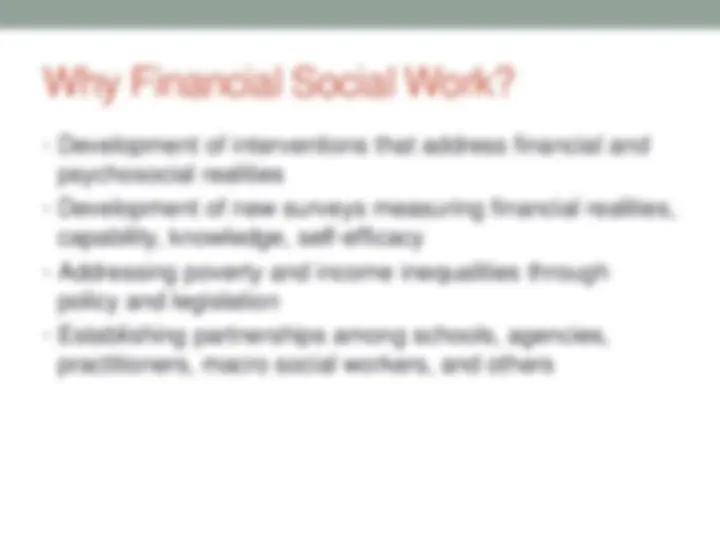
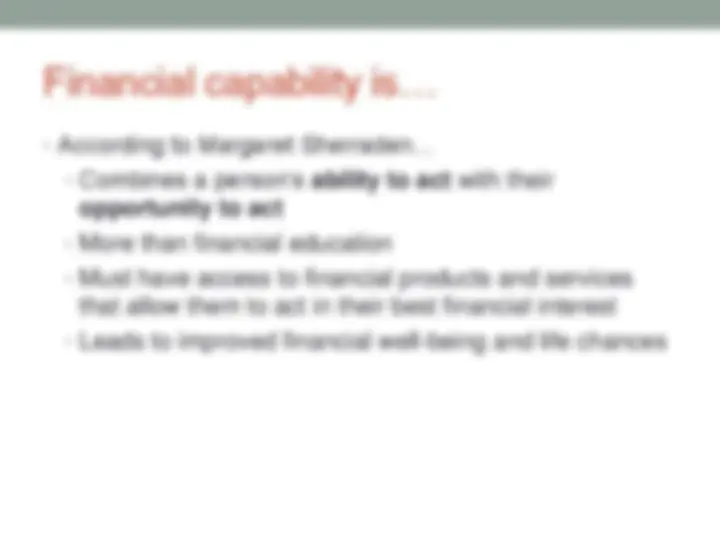
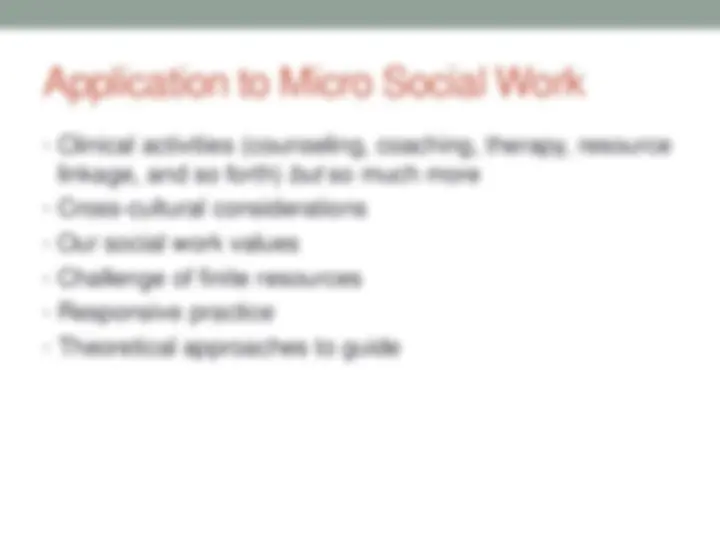
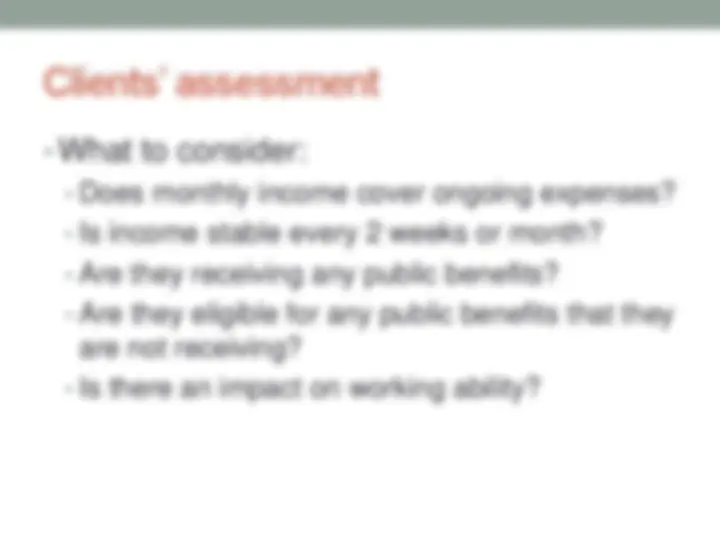
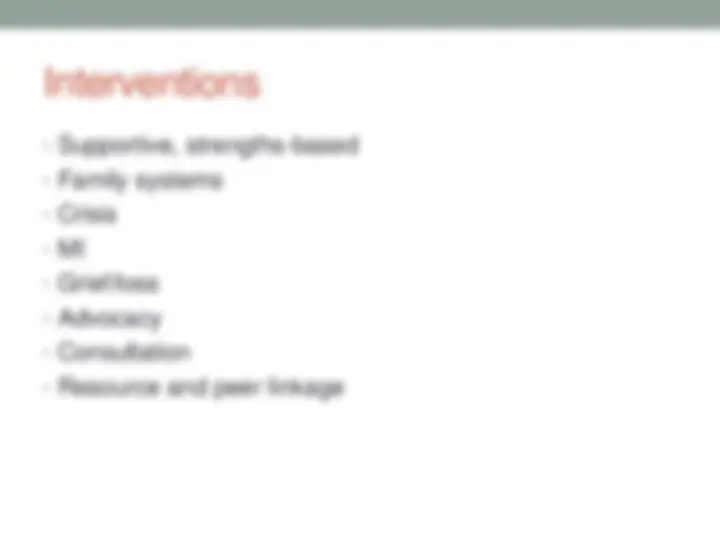
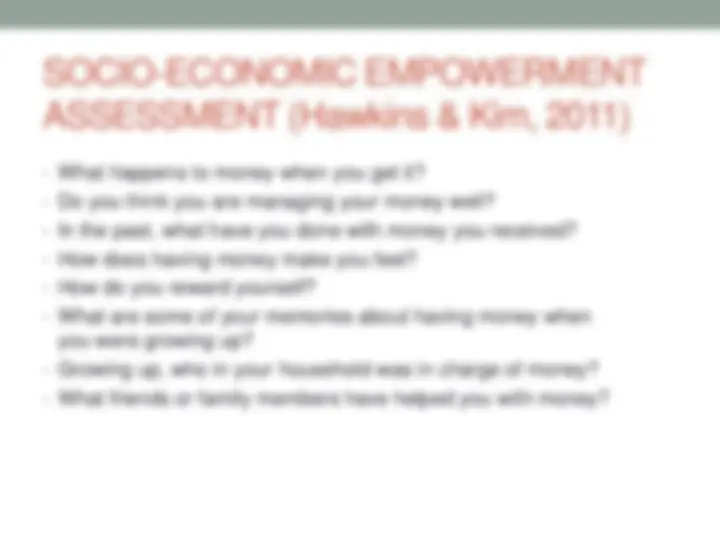
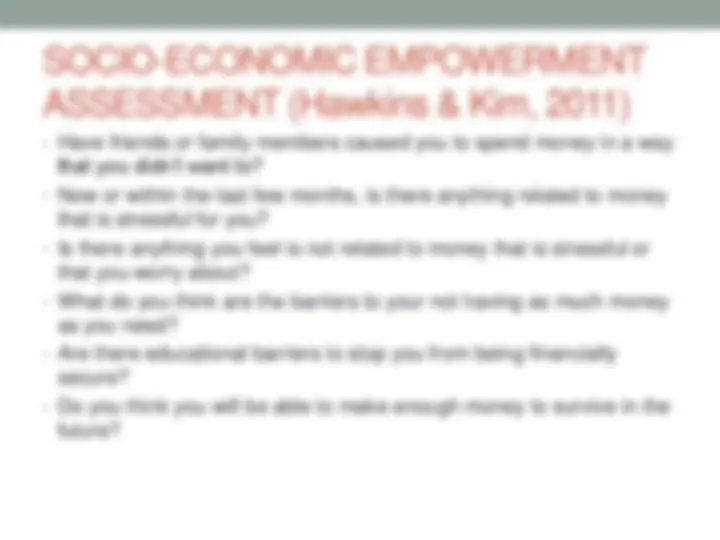



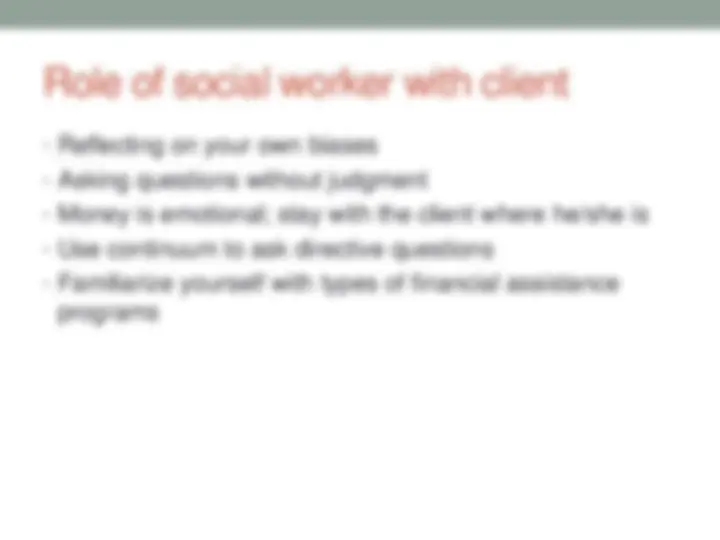


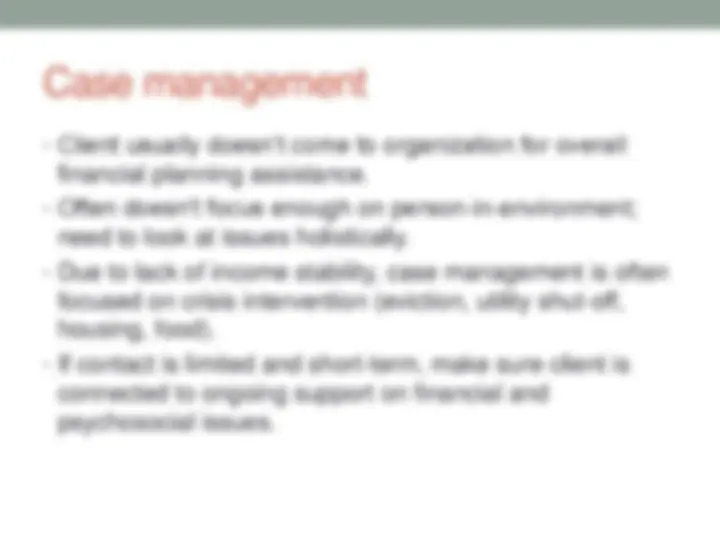


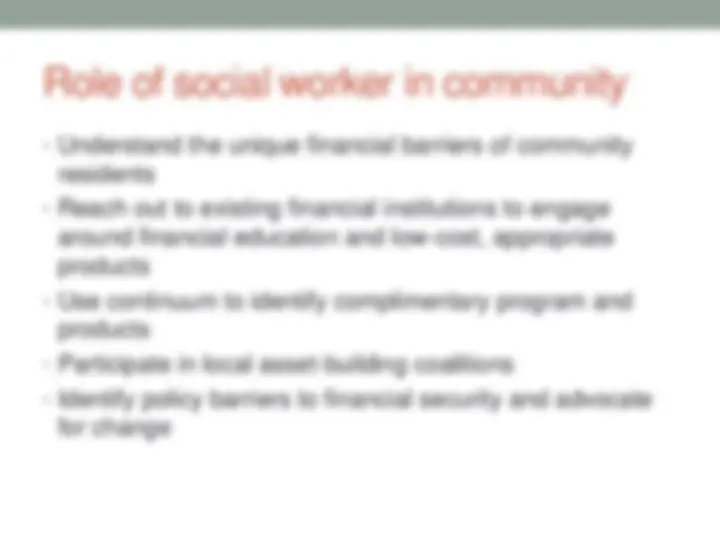
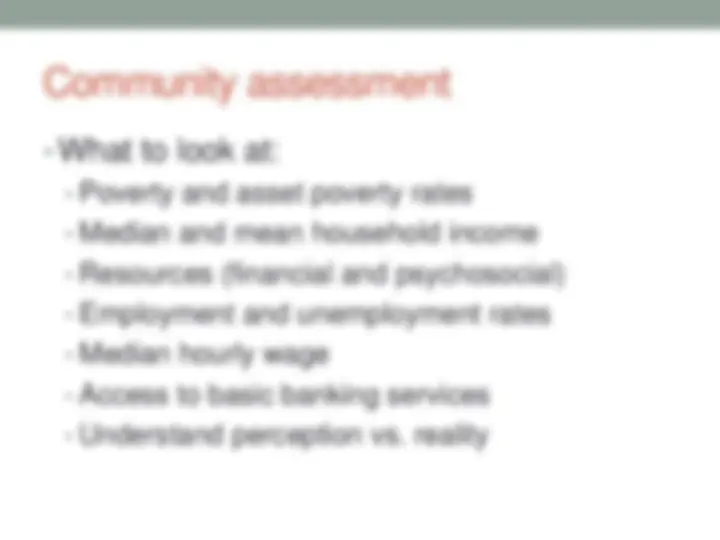
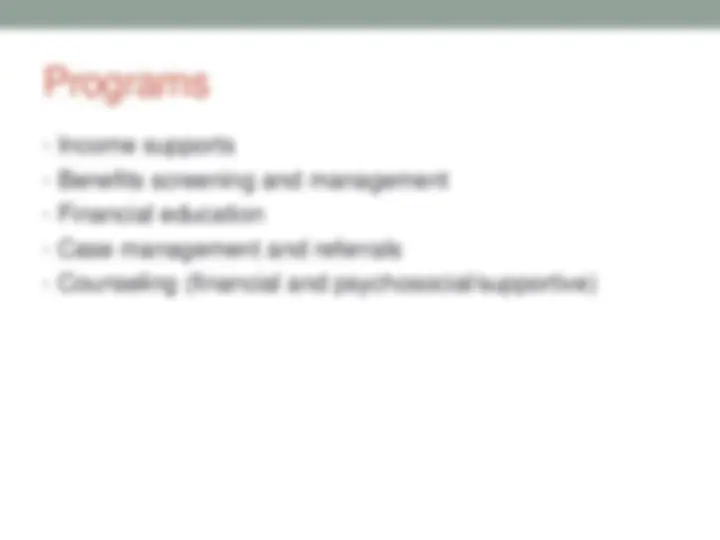


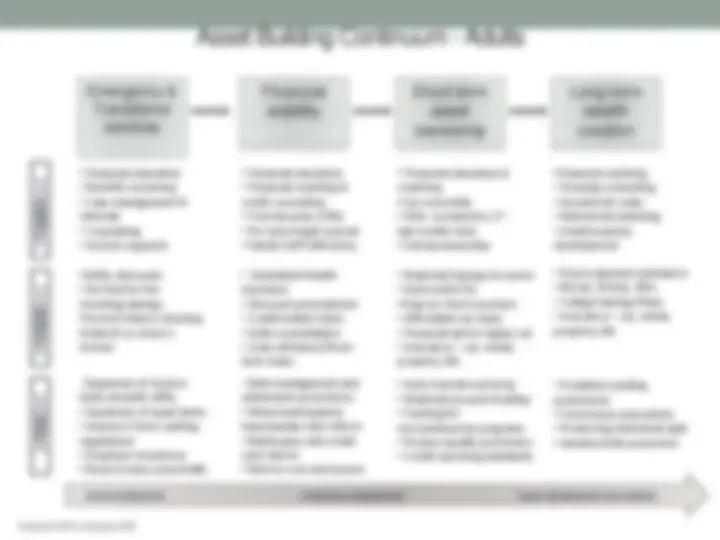


Study with the several resources on Docsity

Earn points by helping other students or get them with a premium plan


Prepare for your exams
Study with the several resources on Docsity

Earn points to download
Earn points by helping other students or get them with a premium plan
Community
Ask the community for help and clear up your study doubts
Discover the best universities in your country according to Docsity users
Free resources
Download our free guides on studying techniques, anxiety management strategies, and thesis advice from Docsity tutors
An overview of Financial Social Work, its importance in addressing the financial and psychosocial needs of clients, and how to integrate it into social work practice. It covers the basics of financial issues, the development of interventions, and the role of social workers in financial coaching and education.
Typology: Study notes
1 / 32

This page cannot be seen from the preview
Don't miss anything!

























Devon Hyde, MSW, Director of Business Development, Guidewell Financial Solutions, and Christine Callahan, PhD, LCSW-C Research Assistant Professor UMSSW/Financial Social Work Initiative
Need to: